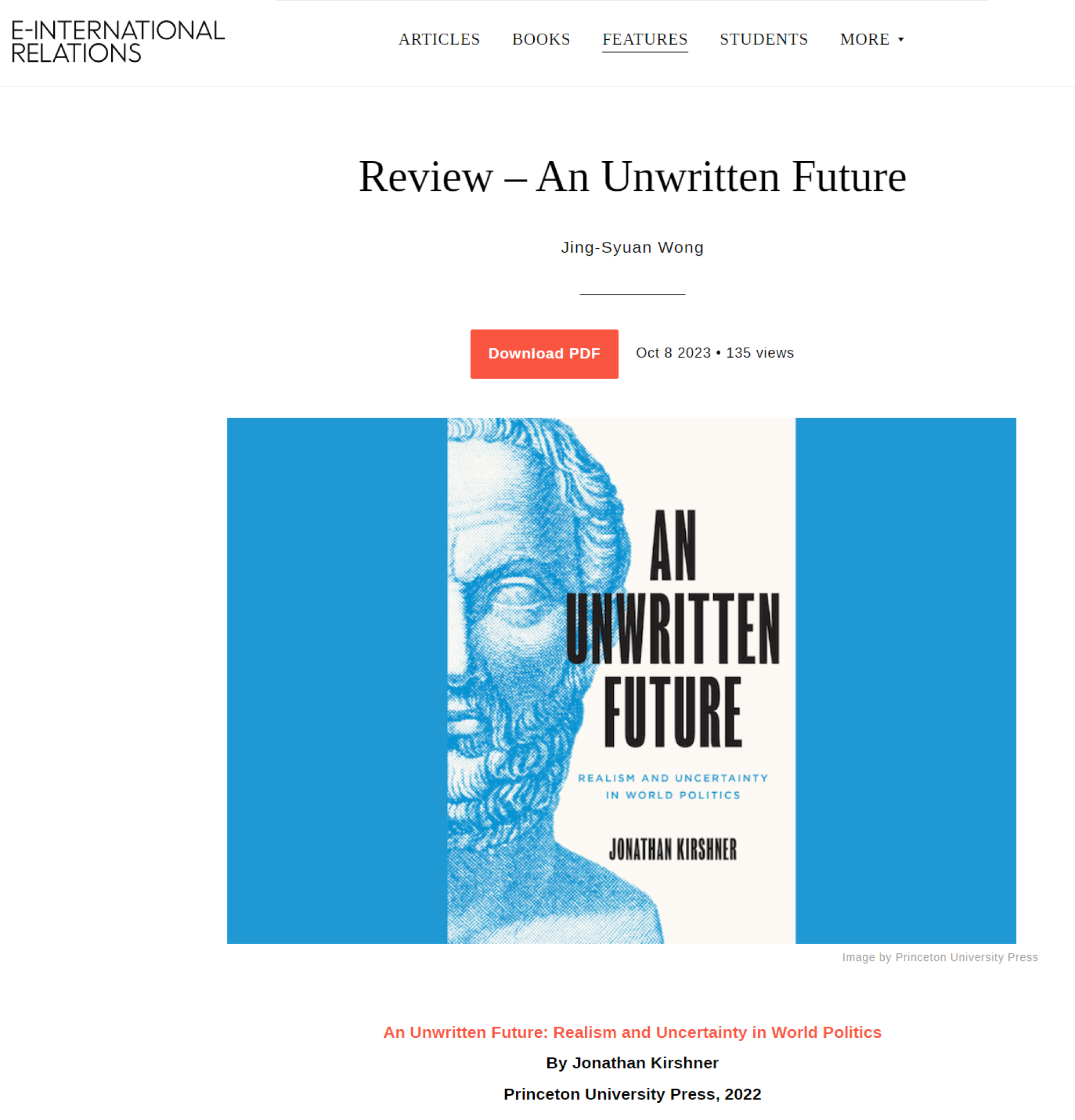A Book Review An Unwritten Future: Realism and Uncertainty in World Politics By Jonathan Kirshner

The latest book by Jonathan Kirshner's main aim is to reclaim the importance of classical realism as some of its influential “descendants” – structural realism and hyper-rationalism – are unproductive in accounting for the
political and contingent nature of international relations.
To better explain his reasons for refuting structural realism and hyper-rationalism, Kirshner lays out the developments
of realism in chronological order. He begins with the dawn of classical realism that took place with the writing ofThe
Peloponnesian War by Thucydides. Despite its dated nature and some potential errors in historical facts,
Thucydides’ analysis on the political nature of human societies, path-dependency and historical contingency of the
political life still holds true for contemporary societies and has inspired many intellectual giants in later epochs. His
notion of anarchy influenced the writings of Thomas Hobbes (although the units of analysis are different—the former
being on a systematic level, and the latter on a state-level). The notions of hubris and desire for power have shaped
the writings of Niccolò Machiavelli. The uncertainties in political life and military combat have left their intellectual
traces in the writings of Carl von Clausewitz. The essence of prudence has shaped the scholarship of Edmund Burke
and John Maynard Keynes.
Kirshner portrays the perspectives of contemporary classical realists on international relations – E. H. Carr, George F.
Kennan, Hans Morgenthau, Raymond Aron, and Robert Gilpin – as the endless and inevitable conflict of interests,
seeing the world as it is, the primacy of politics and inescapable uncertainty, the struggle for objectivity, and
dynamics over statics. According to Kirshner, these rich analytical perspectives stand in sharp contrast with the
narrow focus of structural realism that follows.
